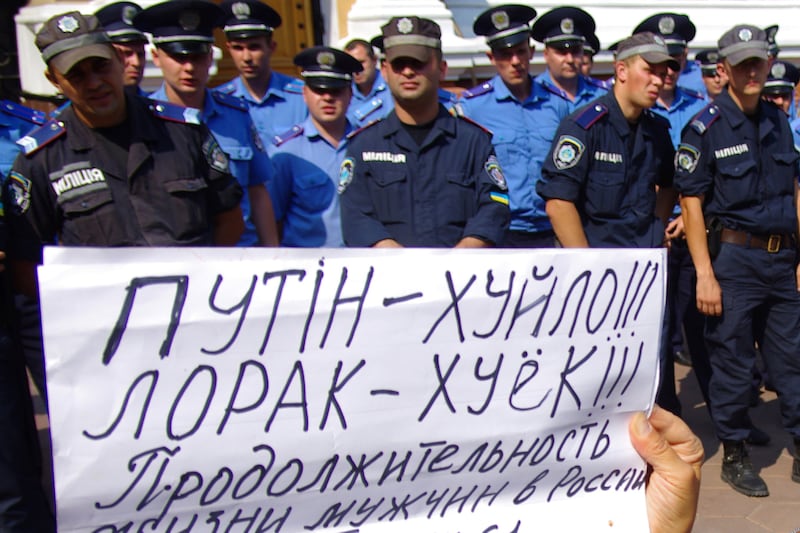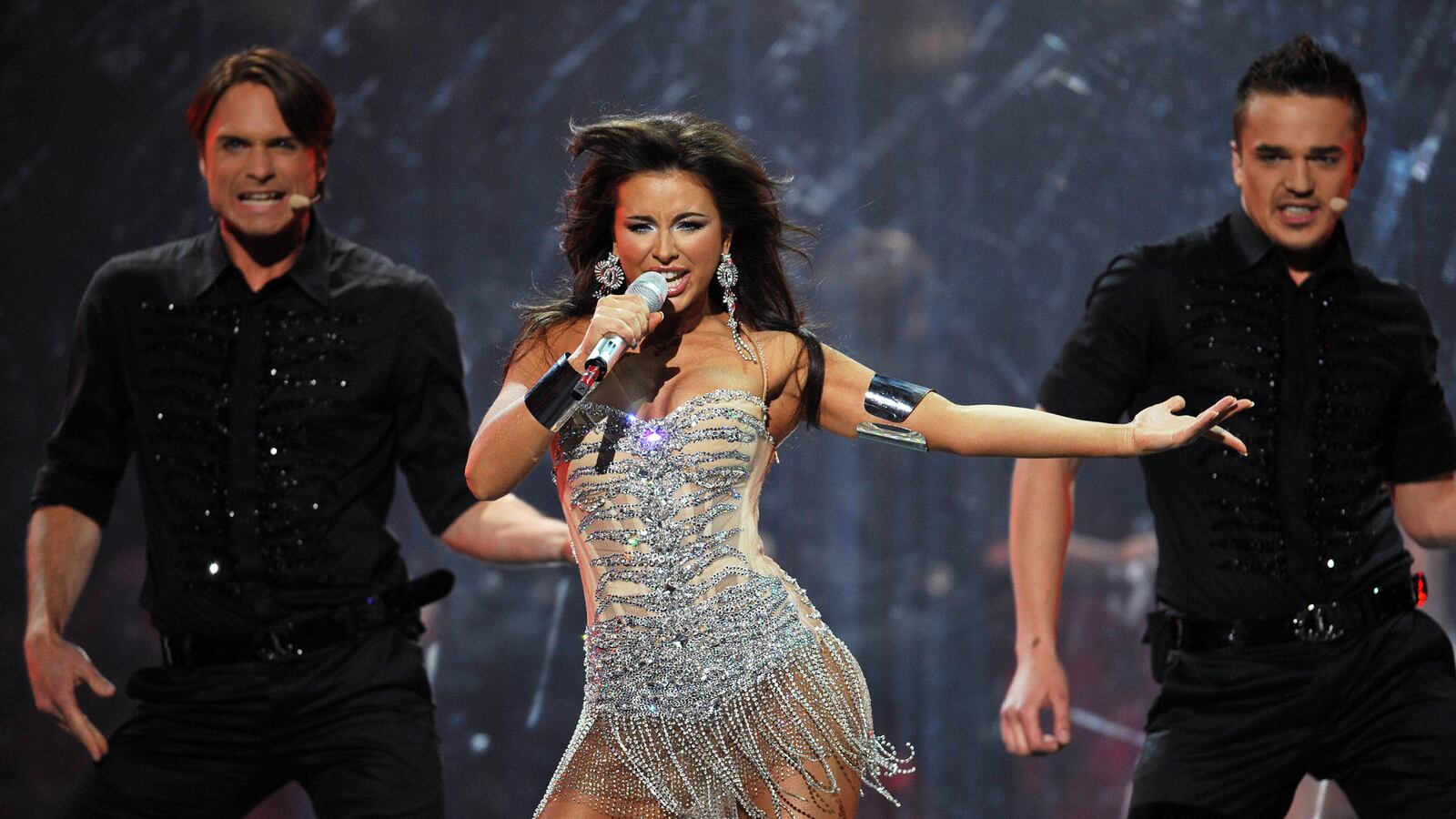In vain, Odessa, Ukraine’s “Pearl on the Black Sea,” tried to stay calm and celebrate the summer, but the stench of war reached the city’s graceful streets trimmed with old chestnut trees. Hate for everything pro-Russian traveled all the way from the frontline in eastern parts of Ukraine to the city’s center, sparking rallies and arguments amongst Odessits, as the locals are known. This time, the reason for the street fighting was a beautiful woman, a dark-haired diva and Eurovision competitor, Karolina Kuiek, known as Ani Lorak.
Ukrainian nationalists have declared that not a single “Russian” pop star would ever perform again on Odessa’s soil, especially now, after a caravan of coffins with Ukrainian soldiers “killed in [a] war with Russia” arrived from the eastern regions of Luhansk and Donetsk, said Ukrainian nationalists.
But Sunday night, the Ukrainian Lorak was scheduled to perform at the Ibiza Club on one of Odessa’s hippest beaches, Arkadia. Activists with the nationalist Right Sector movement were planning to disrupt the show in protest of her work in Russia and friendship with Russian celebrities.
“Not only did she go to Moscow in the midst of the war to receive the Kremlin’s Ru.TV award, but she is using a Russian pop star Filipp Kirkorov for her promoter and producer,” said Arseny, one of the protest organizers.

So he and his comrades had been planning a “dark, powerful blow” for days in the hopes of spoiling Lorak’s performance for her fans—mostly peaceful Odessits. Protestors demanded the club cancel the show.
But police broke up the gathering at the beach, clashing with protesters. Three people were hospitalized from the fighting, and many more sustained light injuries.
The next day, on Monday, rows of police blocked Jewish Avenue, one of Odessa’s central streets, from dozens of protesters coming to demonstrate outside of the central police station.
“Shame on Odessa’s police, they sold out! They took money from the pro-Russian Lorak, when our boys are dying from Russian weapons on the frontlines,” said Nikolai Docenko, a young protester and former boxer with a bruised and swollen forehead, stitches on the back of his head, and a broken hand.
The war in Ukraine has become as much about culture as about territory, and Lorak is not the only artist drawing fire. The minister of interior affairs, Anton Geraschenko, said on Monday that 500 Russian cultural figures who supported the Crimea annexation would be banned from entering Ukraine. The list would include Russia’s most famous pop singers, actors, artists, theater and film directors, he told The Daily Beast. “Anybody who thinks Crimea should be Russian, will not step on Ukraine’s soil,” Geraschenko said in a phone interview on Monday.
The street protests dismayed some Odessits.
“As if we did not have enough pain, enough wounded soldiers coming from the front,” said Mark Gordiyenko, the leader of the civil group, Public Security Council. “This meaningless street rally shames Odessa, a city that is doing everything today to stay human in this mess and support both refugees and the army.”
He said that the Ukrainian army needed food, clothes and ammunition, and that any financial aid to the Ukrainian economy, even if it came from Russia, would be helpful.
Lorak was doing her part, Gordiyenko said. Part of the money she allegedly paid to the club to perform would benefit Ukrainian troops fighting in the east.
“Ibiza Club agreed to transfer 50 percent of [the] money made on her concert, about $30,000, to a state foundation supporting our troops at the front,” Gordiyenko said.
But not everybody in Odessa believed that the pop singer’s money would be fully spent on the army’s needs.
“What I can be sure about is my private business money spent on buying ammunition, canned food and medicine for dozens of military men I personally support,” said Sergei Maly, one of the volunteers.
Lorak seemed offended and scared by the angry protesters. She told reporters on Monday that she was a real patriot of Ukraine, loved her country dearly and advised her critics to go to the frontlines.
“They should go and join [the] Anti-Terror Operation,” she said.
Meanwhile, fighting continued in Donetsk, the capital of the pro-Russian rebel resistance. National newspapers reported that two Ukrainian battalions, Shakhtersk and Azov, were approaching the city’s outskirts.
The news made some young Odessa patriots happy. A group of students celebrated the “long-awaited progress” on the frontline in the city’s Shevchenko Park on Monday evening, performing skillful jumps, singing the national anthem, dancing on roller skates and chanting “To Ukrainian glory. Glory to Ukraine!”
Two friends on skates, Mikhail and Maksim, both students of Mechnikov National University, looked at iPhone pictures of Ukrainian soldiers and a five-story building on fire, published on Facebook by Azov battalion spokesman Igor Mosiychuk. They wondered if civilians managed to escape the shelling this time.
Were the students ready to join the volunteer draft and go to the front? “I am personally not ready to kill Ukrainians and Russians on the east,” Mikhail, 21 said. “It is probably unpatriotic but I am having fun here on the beach with my friends.”






